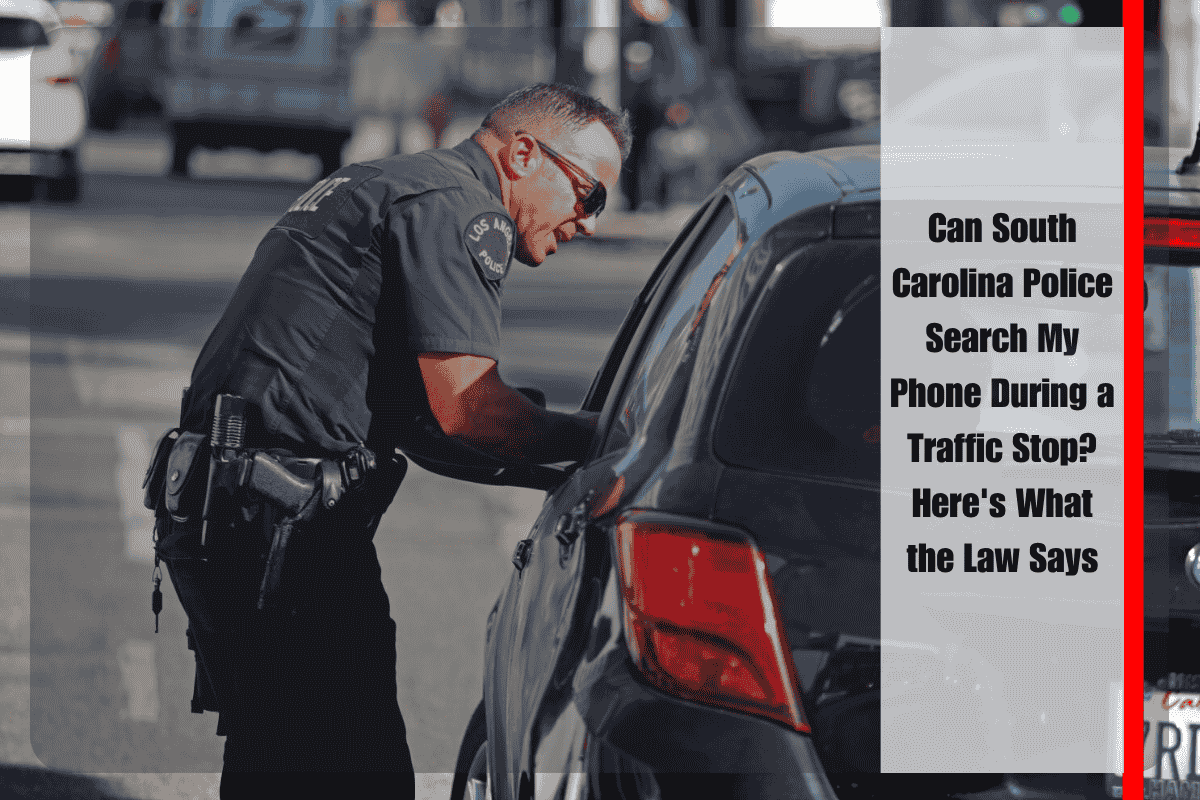South Carolina police cannot search your phone during a traffic stop without your consent, a search warrant, or a recognized legal exception such as a true emergency. The U.S. Supreme Court’s 2014 decision in Riley v. California set a clear national precedent, ruling that law enforcement generally cannot search the contents of a cell phone seized during an arrest without first obtaining a warrant. This rule also holds true for traffic stops in South Carolina.
During a typical traffic stop, law enforcement officers might ask drivers or passengers for consent to search their phone, but you have the right to refuse that request. South Carolina law specifically reinforces that your phone is protected under the Fourth Amendment of the U.S. Constitution, which guards against unreasonable searches and seizures. If the police believe your phone contains evidence of a crime, they must convince a judge to issue a search warrant based on probable cause. Unless officers can demonstrate there is a true emergency or immediate threat—circumstances that are extremely rare in routine traffic stops—they cannot legally compel you to give up or unlock your phone on the spot.
Even if your phone is temporarily seized by police during an arrest, the Supreme Court has determined that a search of its digital contents still requires a separate warrant. Officers are not allowed to pressure or coerce you into providing your password, and you are not obligated to surrender it or consent to any search without a valid warrant or clear and compelling exception. This legal protection is a cornerstone of privacy law, and South Carolina courts and law enforcement agencies must follow these constitutional rules.
You should also know that you are within your rights to tell the officer respectfully that you do not consent to a search of your phone. If an officer tries to gain access without your permission or a warrant, any evidence they collect may later be deemed inadmissible in court due to the violation of your constitutional rights. However, if you voluntarily hand over your device or unlock it for the police, anything found on your phone could potentially be used against you.
One important nuance is that there are increasing hands-free and distracted driving laws in South Carolina, which regulate the use of cell phones while driving. The state’s updated regulations require drivers to use hands-free technology and forbid holding or operating a handheld device. Violating these laws may result in a citation, but they do not, by themselves, give police the legal authority to search your phone’s contents.
To summarize, absent a warrant or emergency, South Carolina police may not search your phone during a traffic stop. If you are asked, you can respectfully refuse, and you are supported by both state and federal constitutional protections.
Sources
[1] https://www.joshgolsonlaw.com/blog/rights-in-traffic-stop-in-south-carolina/
[2] https://shealeylaw.com/rights-during-a-traffic-stop/
[3] https://www.govtech.com/public-safety/can-police-search-your-phone-during-a-traffic-stop
[4] https://scdps.sc.gov/handsfree
[5] https://www.carolinaattorneys.com/blog/understanding-fourth-amendment-rights-in-traffic-stops/












